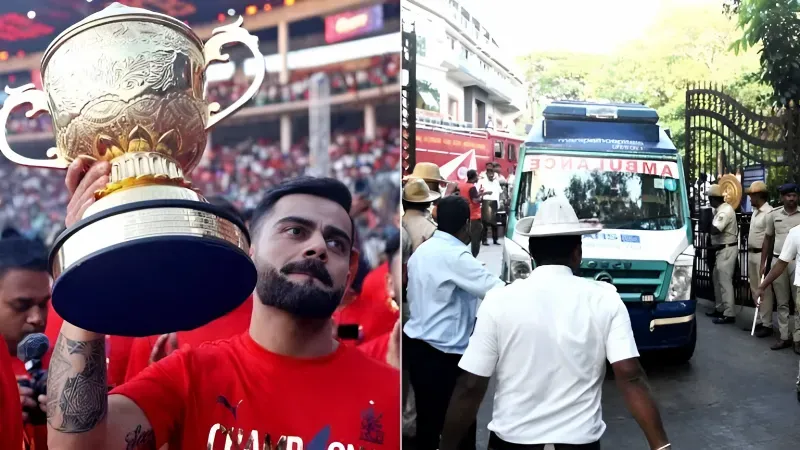When Royal Challengers Bengaluru (RCB) ended their 17-year run without winning an IPL title, the celebrations in Bengaluru were complete with joy – streets dressed in red and black, fireworks lighting the sky, and fans everywhere.
But what should have been pure jubilation turned tragic. The day after the final, RCB had a victory parade in Bengaluru on June 4, and tragically, a stampede ensued, which left 11 dead and countless injured. To their credit, the Board of Control for Cricket in India (BCCI) has, in an important move, potentially altered how future celebrations will be conducted.
So, what went wrong, and how will the BCCI prevent this from happening again? Let’s find out.
RCB’s Rushed Parade: A Case of Poor Planning
Let’s be honest: victory parades are emotional events. It’s an opportunity for fans and players to share joy, wave flags, cry, and revel in that glory that took so long to achieve. But timing and planning – they matter – and in this instance, they were both dearly lacking.
RCB’s celebratory commemorative activities were derived and prepared almost instantaneously after their victory on June 3. Within a few hours of celebrating their victory, a large event was being prepared in Bengaluru. The city’s infrastructure was taxed. Fans were pouring into the city. Crowd management was virtually nonexistent, the emergency plan was far from an adequate emergency plan, let alone, size of the emergency, and the result was an utter disaster, a stampede.
By contrast, the BCCI secretary Devajit Saikia referred to India’s winning celebratory parade in Mumbai upon winning the T20 World Cup in 2024. That celebration was delayed, carefully planned, and even executed by the BCCI. There were zero deaths. That is the impact that planning can make.
Who’s in Charge? The Franchise vs. The BCCI
After the incident, one of the most striking pieces of information was that the BCCI is not responsible for celebrations at the franchise level. Saikia added that the board’s responsibility ends with the award night after the final event. After that point? The franchises are on their own.
That hands-off approach may have worked in the past, but as fan culture has become more susceptible to assuming celebratory space in experiences, and the ’scale’ of celebratory events has increased, it is simply not sustainable. Cricket is not just a game in India, cricket is a mania. And with mania comes responsibility.
The Bigger Picture: Cricket Needs Safer Celebrations
This incident is beyond a BCCI problem or an RCB problem—it’s a call to action for all stakeholders in Indian cricket. The fans are the lifeblood of cricket, and if we can successfully host World Cup finals with packed stadiums with adequate security, should we not be able to exercise that level of caution in our celebrations?
In addition to re-evaluating how franchises interact with fans in times of victory, could we perhaps look at hybrid virtual festivities, staggering meet-and-greets for fans, or ticketed parades with limited attendance? It’s not about killing the vibe—it’s about creating a vibe that doesn’t involve risking lives.
Lastly, as social media puts every moment on blast in real-time, “go big or go home” never looked so good. But in our quest to trend, could we even make safety a priority?
There’s no reason for RCB’s 2025 win to be remembered for anything but sport. There are no words to erase the loss suffered at Bengaluru. BCCI’s intervention via future directives suggests there will be changes to the way milestones are celebrated.
To catch up on the most current news on all of your favorite thrilling cricket updates, visit Six6slive to access our comprehensive Latest News, insightful analysis, and updates. Connect with the action now to make sure you never miss out!
